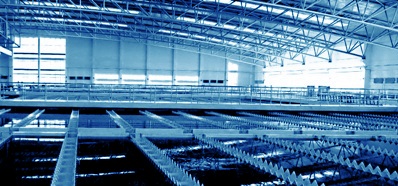Domestic filters of electrochemical activation
Benefits of Household Water Filters for Drinking Water Purification

Household water filter
Household water filters for drinking water purification are an effective and convenient solution to ensure access to clean and safe water in domestic settings. The choice of a specific type of filter depends on individual needs and the quality of water in the region, but overall, using a household water filter can bring significant benefits to your health and the environment.
Clean drinking water is a key aspect of a healthy lifestyle. However, in the modern world where environmental pollution is becoming increasingly common, ensuring access to quality water is a challenge. In response to this, household water filters for drinking water purification are becoming increasingly popular, providing families with a way to protect themselves from potentially harmful contaminants. Let’s consider the benefits they offer and how they work.
Benefits of Household Water Filters for Drinking Water Purification
The benefits of using household water filters for drinking water purification include:
- Improved water quality: They remove various impurities from the water, including chlorine, heavy metals, chemical pollutants, and even microorganisms. This can significantly improve the taste and odor of the water, making it more enjoyable to consume.
- Health protection: Removing potentially dangerous contaminants helps protect the health of the family. This is particularly important for children, pregnant women, and people with weakened immune systems.
- Cost savings: Investing in a household water filter for purification can save money on purchasing bottled water. In the long run, using a filter can be a more economically advantageous option.
- Environmental benefit: Reducing the consumption of bottled water in plastic bottles helps reduce waste production and mitigate the negative impact on the environment.
How Household Water Filters Work
The operation of filters is based on the following principles:
- Mechanical filtration: Mechanical methods such as sieves or membranes are used for purification to capture particles of contaminants and microorganisms.
- Carbon filters: Carbon filters absorb chlorine, organic compounds, and some heavy metals due to their porous structure.
- Revitalizing systems: Some filters include revitalizing systems such as reverse osmosis or ultrafiltration to remove even smaller contaminants and microorganisms.
Types of Water Filters
There are many different types of domestic water filters available today, designed to improve the quality of drinking water right in your home. The main varieties of such filters include:
- Carbon Filters: Effectively remove chlorine, impurities, and some heavy metals from water.
- Reverse Osmosis Filters: Utilize a membrane to remove ions, molecules, and particles from water. They can purify water from bacteria, viruses, salts, and other harmful substances.
- Ultrafiltration Filters: Remove bacteria, viruses, nitrates, pesticides, and other impurities while maintaining beneficial minerals in the water.
- Ion Exchange Filters: These filters remove salts, hardness, lead, mercury, and other heavy metals from water. They are often used for water softening.
- Ultraviolet Filters: Destroy bacteria and viruses using ultraviolet radiation without adding chemical substances to the water.
The choice of a suitable filter depends on the water quality in your area, the requirements for purified water, and your budget. When choosing a filter, pay attention to its performance, operating cost, reliability, and installation method.
Using domestic water filters for water purification will allow you and your family to enjoy clean and safe drinking water, promoting overall health and well-being.
Household Filters from “LET” Company
Household filters of electrochemical activation K-1 and M-1 are designed to obtain activated water with antioxidant properties. The antioxidant effect is due to a negative redox potential. According to various sources, systematic consumption of such water has a beneficial effect on human health.
What is redox potential?
This is a characteristic of a system indicating the direction of oxidation-reduction reactions. A positive potential indicates the predominance of oxidation reactions, while a negative one indicates reduction. Tap water has a positive redox potential.
How to obtain water with a negative potential?
Drinking water has a complex chemical composition and contains many different compounds. In most natural environments, the redox potential is directly related to pH. To obtain activated drinking water with a negative redox potential without changing the chemical composition of the water, artificial displacement of the oxidation-reduction equilibrium of the system is required.
In household filters K-1 and M-1, water undergoes treatment in the anodic and cathodic chambers of special electrochemical reactors. Side products of treatment are removed from the activated water by filtration.
As a result:
- Microorganisms contained in the water are destroyed.
- Hardness salts are removed.
- Salts of heavy metals are removed.
- Water acquires antioxidant properties without changing the pH level.
LET Company Filters:
There are two modifications – “M1” and “K1”.
The installations differ in the number of electrochemical reactors and the level of reduction of the redox potential.
Installation can be of two types:
- Wall mounting;
- Under-sink installation.
You can perform the installation yourself. For residents of Moscow, installation service by LET Company specialists is available.
Maintenance:
Periodic acid flushing from hardness salt deposits is required. You can perform flushing yourself at home according to the instructions.
To extend the filter’s service life, it is recommended to periodically perform professional flushing. At any time, you can contact our company specialists for this service.
Call ☎ (495) 232 00 66.



